10 major World Cup injustices that VAR would have changed
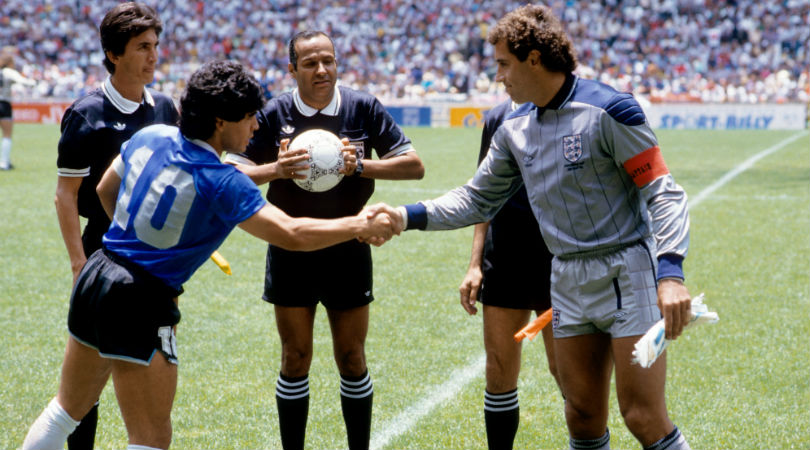
From the Hand of God to missed red cards
Video Assistant Refereeing has been rolled out around the world with reactions ranging from cautious optimism to cantakerous bewilderment. Despite the teething problems, it’s clear that video technology is here to stay.
With the confirmation that VAR will be used on the biggest stage of all – this summer's World Cup in Russia – we take a look at some of the most contentious decisions in past editions of the competition, and how different things may have been had the technology been available. Who knows – maybe England would have won it a few more times. Or perhaps not...
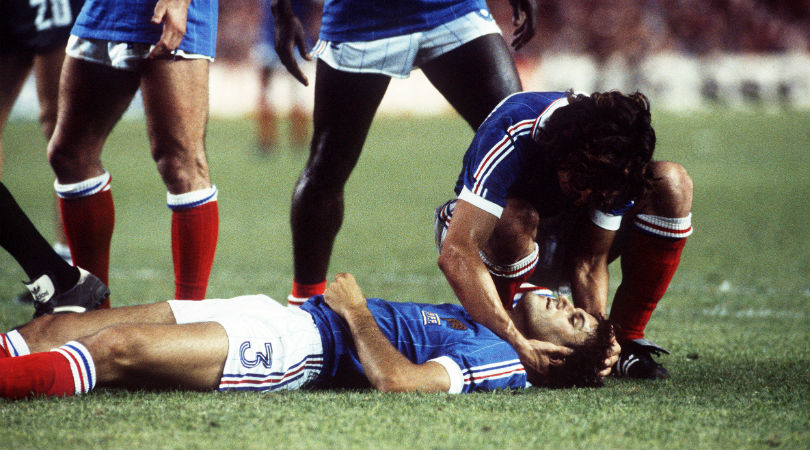
Harald Schumacher vs Patrick Battiston (1982)
One of the most infamous World Cup moments, in one of the competition's greatest-ever matches. Patrick Battiston was clean through on goal when West Germany goalkeeper Harald Schumacher came tearing off his line to close him down; as the Frenchman prodded the ball past the moustachioed FC Cologne goalkeeper all eyes were on whether the ball would cross the line.
It didn’t, but Schumacher did. Such was the force of the collision between the two that Battiston suffered three broken ribs and required oxygen; he still has a cracked vertebra and damaged teeth to this day. Inexplicably, as the defender lay unconscious surrounded by his own teeth, the Dutch referee Charles Corver signalled for a goal kick. Battiston was carted from the field on a stretcher and West Germany went through to the final on penalties following a 3-3 draw after extra time.
As unpleasant as a slow-motion replay would have been for the Video Assistant Referee, Schumacher would surely have been sent off and one of the greatest teams international football has ever seen might well have progressed to the final instead of West Germany. Battiston and Les Bleus went on to win the European Championships two years later; the defender ended up winning Ligue Un five times with three different clubs.
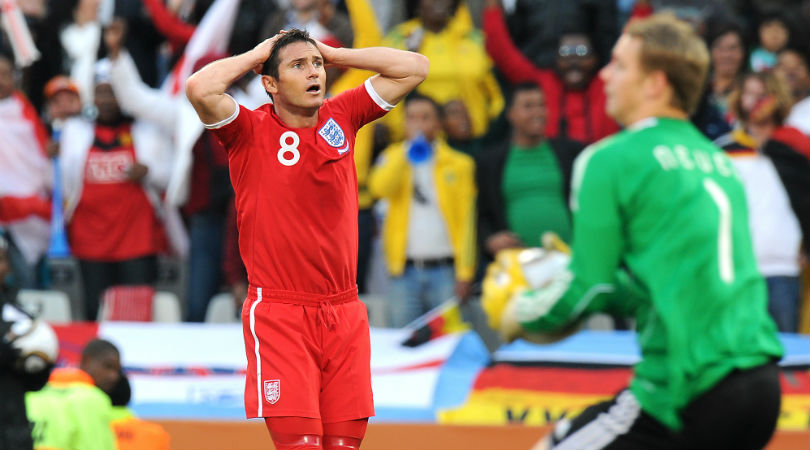
Frank Lampard vs Germany (2010)
For every England fan, this is the one that still hurts; for every German fan, it was a measure of karmic revenge from 1966; for FIFA, it was the start of a serious drive to bring video evidence into refereeing decisions – Sepp Blatter himself cited the example when unveiling the plans.
In a last-16 clash held in Blomfontein, Germany had gone two up by the 32nd minute through Miroslav Klose and Lukas Podolski – but within five minutes a Matthew Upson header halved the debt. Barely two minutes later Frank Lampard's typically excellent 20-yarder sailed past Manuel Neuer, crashed down off the underside of the bar and bounced way over the line. The spinning ball then hit the bar again and was collected by Neuer.
It’s easy to propose that at 2-2, with Germany reeling, England might have gone on to win the game. Perhaps it's just as easy to imagine that as England went for a winner, a clearly superior Germany would have picked them off on the break, as Thomas Muller did twice in the second half anyway. Or perhaps in this case, VAR would have just subjected the Three Lions to a fifth defeat in 12 years via a tournament penalty shootout; as it happened, they simply had to wait two years for Italy at Euro 2012.
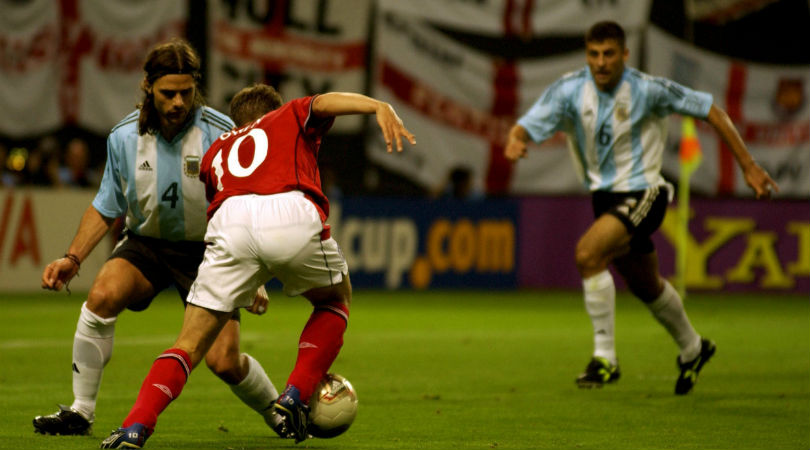
Michael Owen vs Mauricio Pochettino (2002)
At the World Cup in France in 1998, an 18-year-old Michael Owen terrified Argentina’s defence with his explosive pace and direct running. Four years later, it was a different skill entirely that helped England out as he went down under a challenge from Mauricio Pochettino. David Beckham fired home the resulting penalty to give the Three Lions a 1-0 victory in the group stage.
Would VAR have changed that? On balance, this perhaps wasn’t clear-cut enough for Owen to be punished for simulation. But for the record, this was England's sole group-stage win: they went through as runners-up, just one point better off than eliminated Argentina, and a group-stage exit might have made Sven-Goran Eriksson's first finals also his last. Might England have turned back to Bobby Robson, whom they'd asked to be caretaker pre-Sven and whose Newcastle side had finished fourth that year?
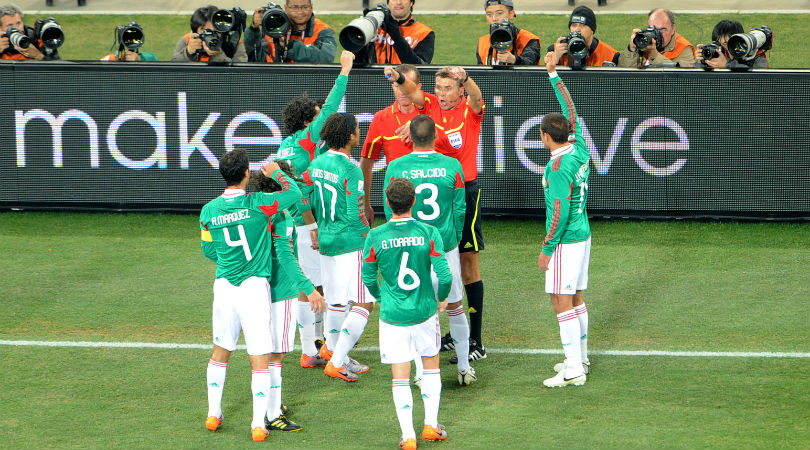
Carlos Tevez vs Mexico (2010)
No stranger to controversy, Carlos Tevez found himself shins-deep in it during a South Africa 2010 last-16 clash at Soccer City. With 26 minutes gone, Tevez headed Argentina in front against Mexico – but If it wasn’t immediately clear that he had done so from an offside position, it was quickly confirmed from various angles by the big-screen replays on the stadium TVs.
In one of the more farcical scenes in World Cup history, the Italian referee was surrounded by Mexican players beseeching him to watch the replays and disallow the goal, but the officials stood firm and Argentina went on to win 3-1. Tevez quickly admitted that he'd known he was offside and "felt guilty". His side promptly crashed out 4-0 to eventual winners Germany.
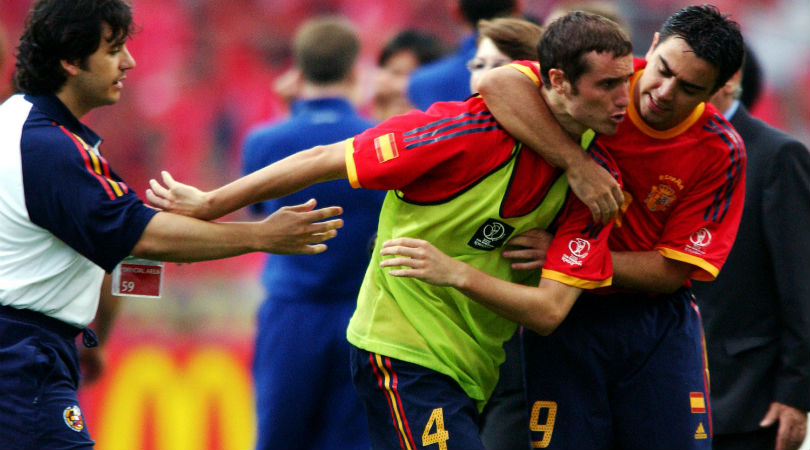
South Korea vs Italy, Spain (2002)
VAR won’t be a panacea for all the ills in football, but its inclusion may take the pressure off referees charged with officiating in front of rowdy and partisan crowds in a stadium where pretty much everyone wants the home side to win.
That’s one explanation for a series of baffling decisions that helped South Korea reach the World Cup semi-finals in 2002, when they co-hosted the tournament and knocked out Italy and then Spain in dubious circumstances: the Italians had key man Francesco Totti dismissed; the Spanish had two goals disallowed. But the referee of the Italy game, Ecuadorian Byron Moreno, was later given two domestic bans for crooked refereeing – something even VAR will have no control over.
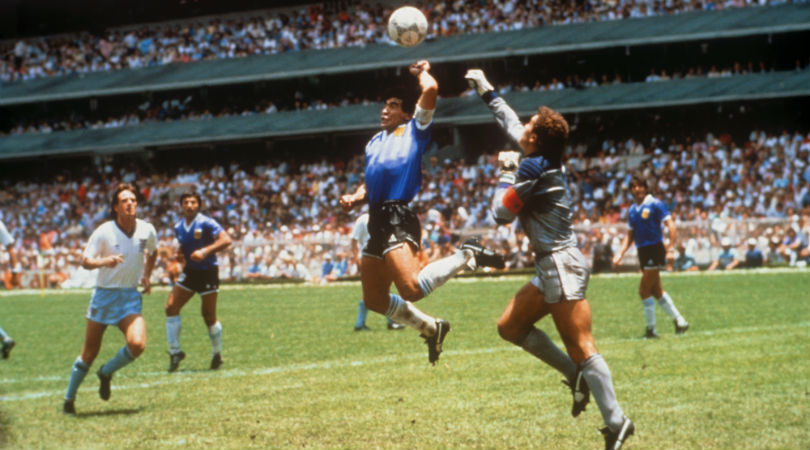
Diego Maradona vs England (1986)
The Mexico 86 quarter-final between England and Argentina showed, within four minutes, both sides of Diego Armando Maradona. His punch past England goalkeeper Peter Shilton put the Argentinians ahead and set to scene for one of the World Cup’s best-ever goals just four minutes later.
The opening goal is exactly the kind of incident VAR has been introduced to overturn. Had it been available back then, there’s no doubt the goal would have been ruled out, Maradona would’ve been booked and England’s defenders may have been better positioned to stop that slaloming, swaying run for Argentina’s second just a short time after. Whether England would have been able to stop him doing something equally brilliant is debatable, however.
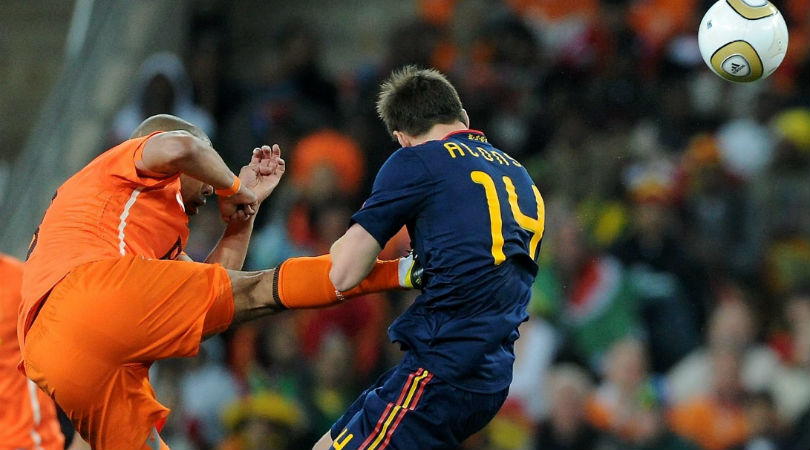
Nigel de Jong vs Xabi Alonso (2010)
Howard Webb later admitted that the biggest regret of his refereeing career was his decision to only book Nigel de Jong for his ribcage-rattling challenge on Xabi Alonso in the 2010 World Cup Final.
Rather than his fear of issuing a red card on the biggest stage, the normally impeccable Englishman cited his poor view of the incident – something VAR would have cleared up. Spain went on to win the World Cup courtesy of an extra-time goal from Andres Iniesta, meaning the decision, as baffling as it was at the time, wasn’t anything like as crucial as it could have been.
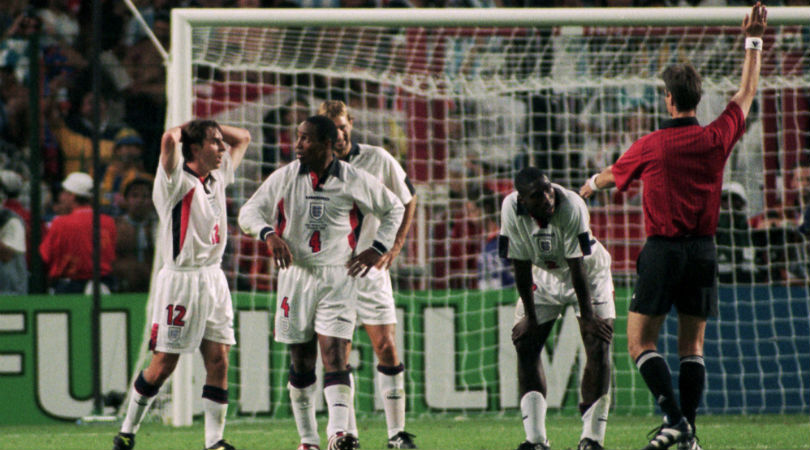
Sol Campbell vs Argentina (1998)
That crazy night in Saint-Etienne in 1998 was chock-full of VAR-worthy incidents. Perhaps with the benefit of another look, David Beckham’s petulant kick-out at Diego Simeone would have been deemed a yellow rather than a straight red – meaning Glenn Hoddle wouldn't have been forced to introduce conservative substitutes like Gareth Southgate and David Batty (more match-winning alternatives included Les Ferdinand, Steve McManaman and Teddy Sheringham).
Less debatably, there’s Sol Campbell’s disallowed goal in extra-time – what could have been a late and rather unlikely golden-goal winner for England was chalked off by Danish referee Kim Milton Nielsen. Argentina went on to face a Dutch side who may not have fancied a quick rematch with many of the England players who'd beaten them 4-1 at Euro 96.
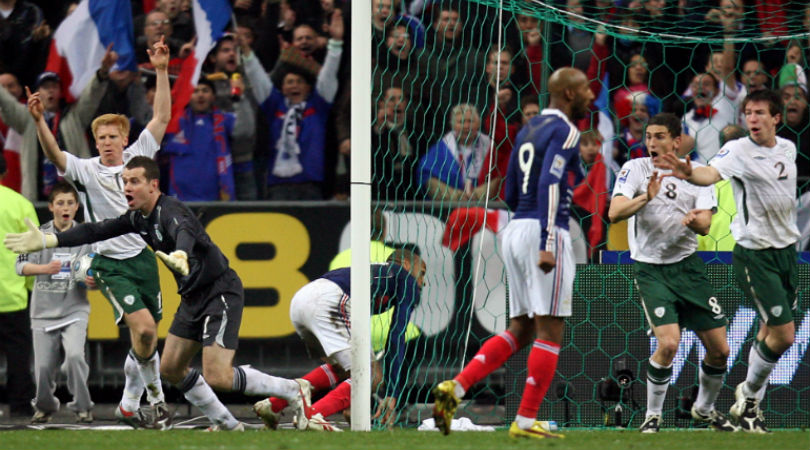
Thierry Henry vs Republic of Ireland (2009)
OK, so not the World Cup proper, but this incident had such a bearing on who qualified for South Africa 2010 that it would be remiss to not mention it. With the qualifying play-off shaped by a seeded draw – a decision made only once the teams had been finalised – the Republic of Ireland faced France for a place at the finals.
In extra-time in the second leg, Thierry Henry clearly controlled the ball with his hand before squaring for William Gallas to bundle home and send France to South Africa. Les Bleus failed to capitalise on their huge slice of good fortune, finishing bottom of their group with one point.
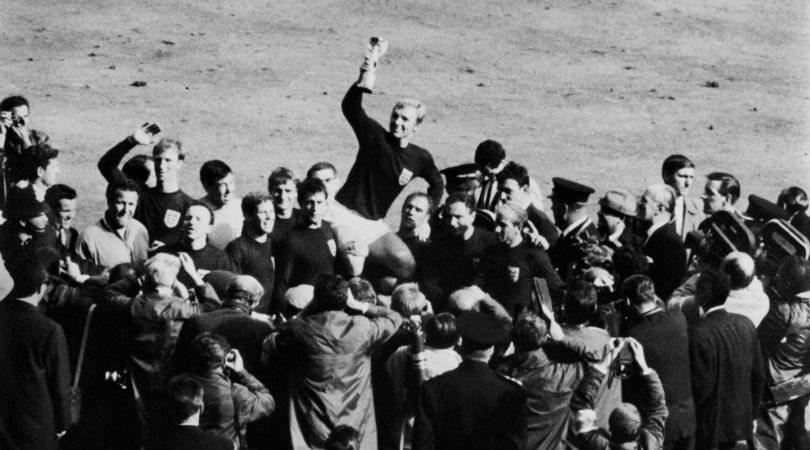
Geoff Hurst vs West Germany (1966)
Three decades after England’s World Cup triumph, football scientists at the University of Oxford and Imperial College London calculated that the third goal scored by England against the West Germans did not cross the line. It came as no real surprise.
Having conceded a last-minute equaliser to Wolfgang Weber, the English upped the tempo in extra-time, with Bobby Charlton hitting the post before Geoff Hurst’s controversial goal re-established the lead in the 101st minute. But if Hurst’s strike had been ruled out, the whole momentum of the match in may have shifted. England may have never won the World Cup at all, and instead of a misplaced sense of importance, they might have a misplaced sense of injustice instead.
 Join The Club
Join The Club










